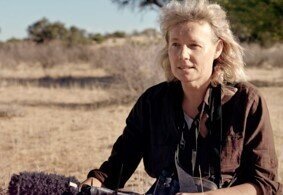Fall 2020 Speakers
Carsten Schradin
Title: Mammalian Social Evolution. Link to Recorded Talk.
Date: 01 September 2020
Suggested Readings:
Loren Hayes
Title: Consequences of communal breeding in a strange rodent, Octodon degus. Link to Recorded Talk.
Date: 08 September 2020
Suggested Readings:
Eduardo Fernandez-Duque
Title: The great unknown, what we (do not) know about solitary floaters in pair-living sexually monogamous primates. Link to Recorded Talk.
Date: 15 September 2020
Suggested Readings:
Aaron Sandel
Title: Within-species variation, data quality, and the aims of primatology. Link to Recorded Talk.
Date: 22 September 2020
Suggested Readings:
Michael Taborsky
Title: Shell-brooding Cichlids as Evolutionary Model for Intrasexual and Intersexual Conflict. Link to Recorded Talk.
Date: 29 September 2020
Suggested Readings:
Sarie Van Belle
Title: Intergroup dynamics in howler monkeys. Link to Recorded Talk.
Date: 06 October 2020
Suggested Readings:
Jordan S. Martin
Title: Comparative Approaches to the Evolution of Human Sociality. Link to Recorded Talk.
Date: 13 October 2020
Suggested Readings:
Delia Shelton
Title: Wild tales of other finned kin, environments affect all within. Link to Recorded Talk.
Date: 20 October 2020
Suggested Readings:
Karen Strier
Title: Implications of social evolution and behavioral flexibility for primate conservation and management. Link to Recorded Talk.
Date: 27 October 2020
Suggested Readings:
Peter Kappeler
Title: Lemur Social Evolution. Link to Recorded Talk.
Date: 03 November 2020
Suggested Readings:
Dan Blumstein
Title: Insights from an emergent view of sociality. Link to Recorded Talk.
Date: 10 November 2020
Suggested Readings:
Christina Riehl
Title: Cooperation and Climate in the Neotropics: Fitness effects of the El Niño–Southern Oscillation on a cooperatively breeding bird. Link to Recorded Talk.
Date: 17 November 2020
Suggested Readings:
Kay Holekamp
Title: Social Evolution in Hyenas. Link to Recorded Talk.
Date: 24 November 2020
Suggested Readings:
Marta Manser
Title: Vocal diversity and its evolution in animals. Link to Recorded Talk.
Date: 01 December 2020
Suggested Readings:
Leticia Aviles
Title: The ecology of spider sociality. Link to Recorded Talk.
Date: 08 December 2020
Suggested Readings:
Romain Libbrecht
Title: The Evolution of Eusociality in Ants. Link to Recorded Talk.
Date: 15 December 2020
Suggested Readings:















